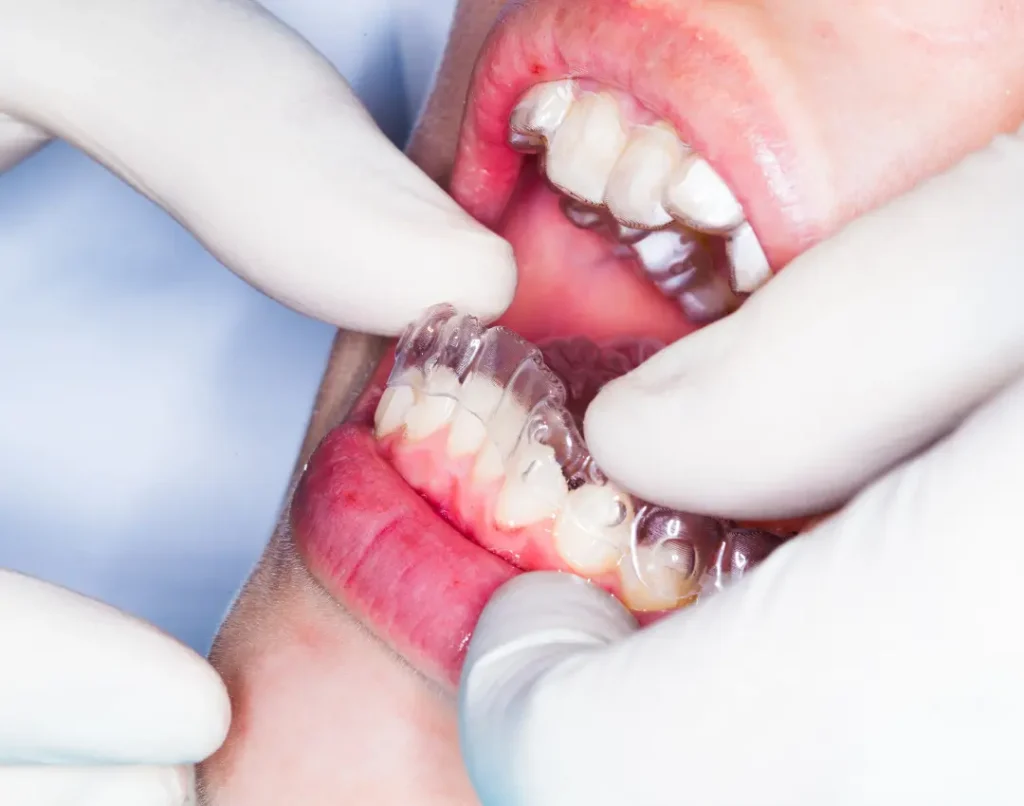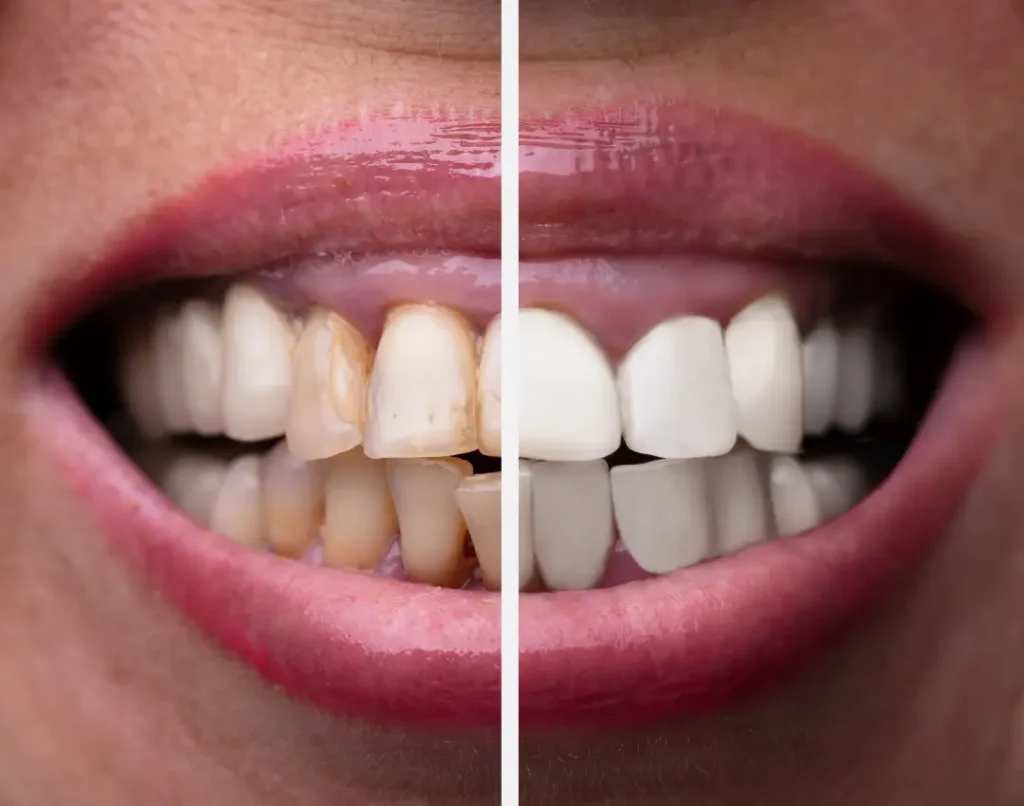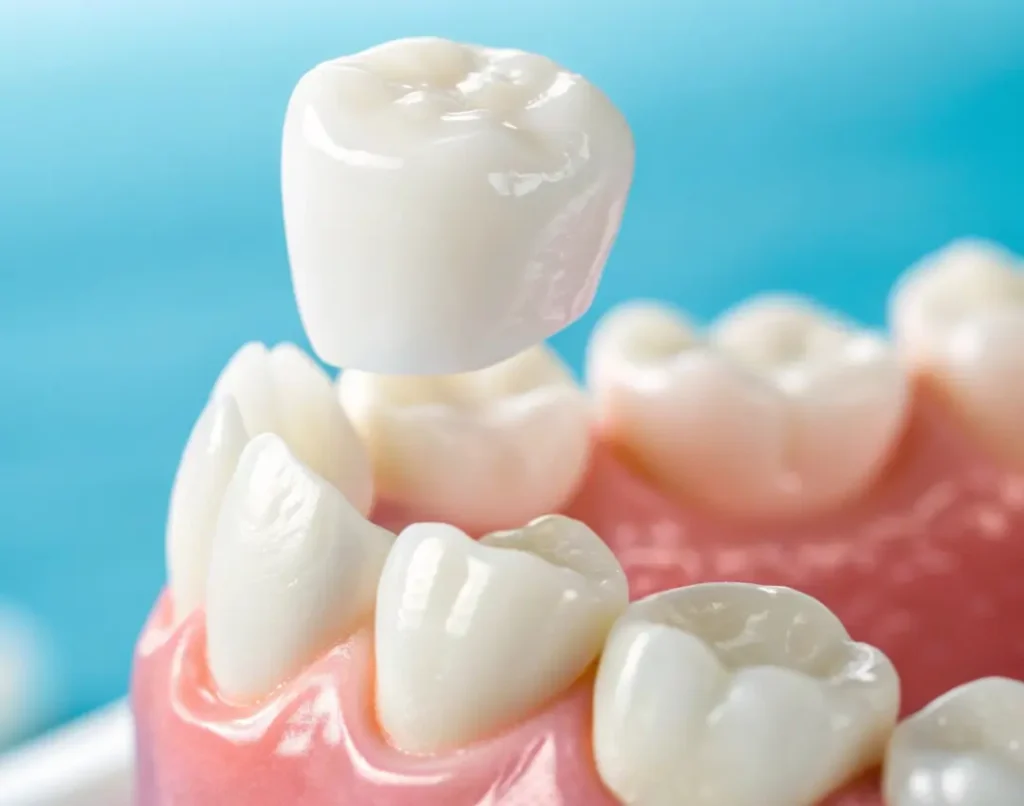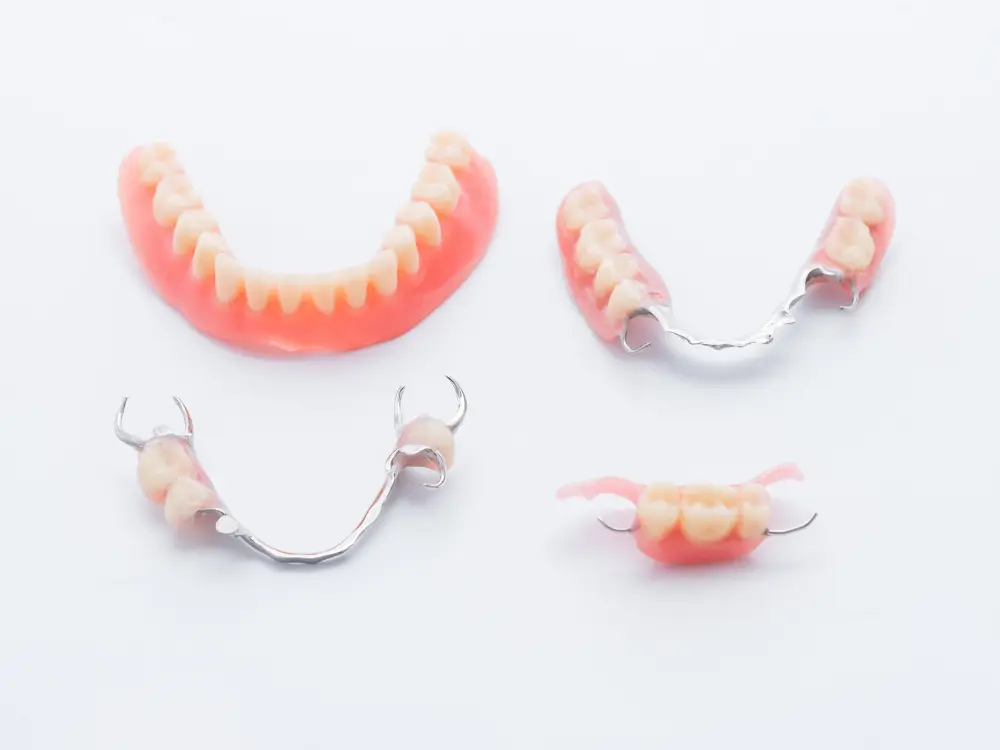You walk out of what you thought was a routine dental check-up and suddenly, your dentist says:
“You might need a crown instead of a filling.”
You smile politely, nod… but inside you’re thinking:
“Wait… aren’t they both just ways to fix a bad tooth? Why the upgrade?”
If this feels familiar, you’re not alone. Many patients come to Dev’s Oral Care with the same confusion: crown vs. filling. Let’s break it down in simple terms, so you can make a confident and informed decision about your dental health.
Feature | Dental Filling | Dental Crown |
Purpose | Fixes small cavities | Restores large damage or cracks |
Tooth Coverage | Fills a portion | Covers the entire tooth |
Time Required | ~30 mins (single sitting) | 1–2 hours or 2 sittings |
Durability | 5–15 years | 10–25 years |
Cost | Less expensive | More expensive |
Appearance | Natural (if composite used) | Highly natural if ceramic/zirconia |
Common Use Case | Small to medium decay | Post-root canal, cracked or weak tooth |
A dental filling is like a patch — it fills a hole or cavity caused by decay.
A dental crown is like a helmet — it covers and protects the entire tooth when it’s too damaged for just a patch.

At our clinic in Pune, we explain it this way:
If enough healthy tooth remains, a filling is sufficient. But if the tooth is weak, cracked, or has undergone root canal treatment, a crown offers better long-term protection.
We recommend a crown when:
In many cases, we’ve seen patients opt for a filling initially, only to return months later when the tooth cracks, making a crown unavoidable. That’s why timing matters.
In most Indian cities, including Pune, here’s a general idea of cost:
Tip: Some insurance plans cover part of the cost. If not, we help patients explore phased payments or treatment options within their budget.
Both procedures are performed under local anaesthesia, so you won’t feel any pain during the procedure.
At Dev’s Oral Care, we utilise digital impressions and gentle preparation techniques to ensure your comfort at every step. At Dev’s Oral Care, we use digital impressions instead of traditional messy molds.
✅ No gag reflex
✅ No cold, gooey trays
✅ Faster turnaround time
✅ More accurate crown fit
✅ Fewer adjustments after placement
This means your crown fits better on the first try, feels more natural while chewing, and you spend less time in the chair, especially helpful for working professionals or students managing a tight schedule.
If appearance is a concern (especially for front teeth), here’s how they compare:
For patients who prioritise aesthetics, we recommend all-ceramic or zirconia crowns, especially on visible teeth.
Crowns can last 10–25 years with proper care and maintenance. Fillings usually last 5–10 years, depending on size, location, and bite pressure.
Sometimes yes, especially if you’re short on time or finances. However, remember that a large filling may not last long and could actually worsen the damage. If your dentist recommends a crown, it’s usually to prevent long-term complications.
Yes! Most of our patients now prefer:
Zirconia or ceramic crowns (natural-looking and strong)
Not really. There may be mild sensitivity post-treatment, especially if you’ve had a deep cavity or root canal. But this usually subsides within a few days.
We evaluate based on:
We also show you digital X-rays and intraoral images, so you’re involved in the decision.
The choice of filling depends on the location of the cavity, your bite pressure, budget, and aesthetic preferences. For example, back teeth may require stronger materials, such as amalgam or composite, while front teeth often benefit from tooth-coloured options.

Whether you’re getting a filling or a crown, 6-month dental check-ups are essential for catching early signs of wear or leakage.
It’s not about which one is better; it’s about what your tooth needs.
A filling may be enough for minor decay, but a crown provides strength, protection, and longevity when your tooth is compromised.
At Dev’s Oral Care, we take the time to walk you through your options, using visuals, digital scans, and real patient cases, so you’re never confused or rushed into a decision.
Visit our clinic for a clear, honest evaluation from Dr. Kamal Kiswani and take the first step toward a healthier, pain-free smile.




